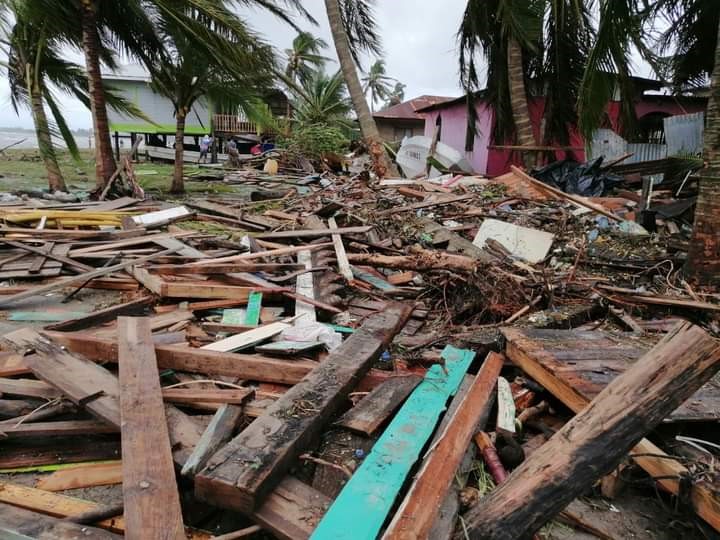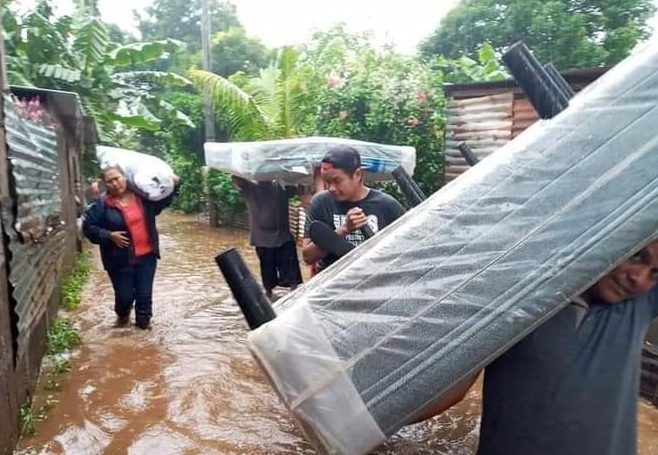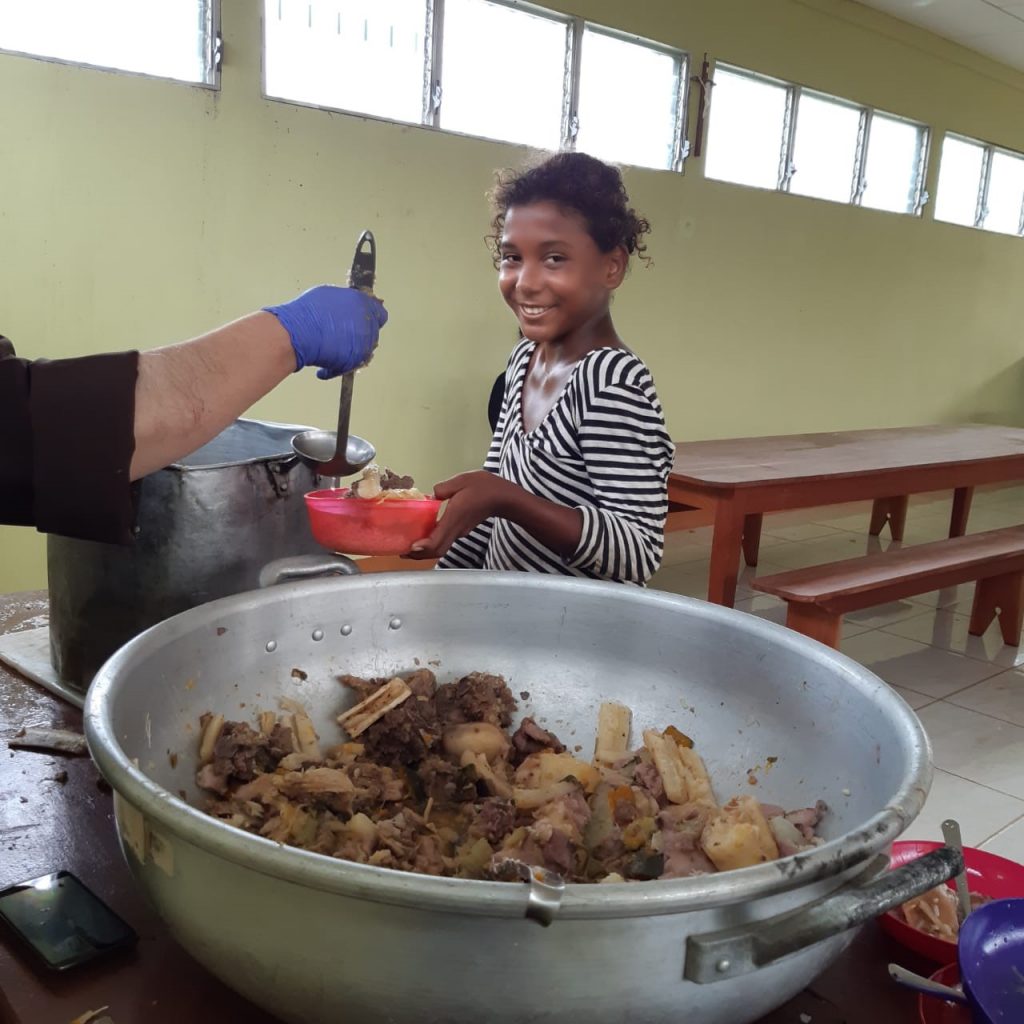Over two weeks in November, two violent hurricanes pounded Nicaragua causing widespread destruction and flooding. More than 150,000 people were left homeless and in desperate need of food and drinking water. Through its local partner, CSI has provided meals to over 1,000 people a day and shelter to dozens of families.



The photos CSI received from its partner in Nicaragua show apocalyptic scenes: whole areas laid waste, houses smashed to pieces, and saddest of all, homeless people trying to salvage a few belongings from the floodwaters. Tens of thousands of people lost all they had when their modest dwellings were swept away. Some victims were stranded and had to be rescued by boat.
From November 3 to 16, Nicaragua was hit by two extremely powerful hurricanes, Eta and Iota. The devastating storms, with speeds of up to 155 miles per hour, caused indescribable destruction, especially on Nicaragua’s east coast. The areas worst hit included districts whose inhabitants were already mostly living below the poverty line. The coastal towns of Bluefields and Puerto Cabezas, where CSI runs aid projects, were also badly affected.
According to official figures, the hurricanes – the worst the country has ever known – left at least 21 people dead and over 150,000 people without shelter.
Many hurricane victims have been left with nothing and receive very little help, like the young woman who makes a desperate plea in a video recorded by our partners. “I am now on the street and have no place to go,” she says sadly, then adds in frustration, “We have not received as much as a piece of bread. It seems as if no one cares. Are we not human too?”
Acute lack of drinking water
The poorest hurricane victims are increasingly suffering from a shortage of food. Many are locked in a struggle for survival. But it’s not just a lack of food that the homeless face. “The water shortage is so acute that those affected are reduced to drinking seawater to avoid dying of thirst,” one of the nuns tells us. In addition, the number of coronavirus cases is rising rapidly because many homeless people are living in close proximity.
CSI’s partners in Puerto Cabezas reacted quickly. After hurricane Eta struck, they began providing more than 1,000 people with meals every day and accommodated 40 families in their convent.
But since the second hurricane, Iota, the need has increased dramatically. CSI is therefore making funds available to provide the worst affected victims of the storm disaster with the basic necessities for survival.

